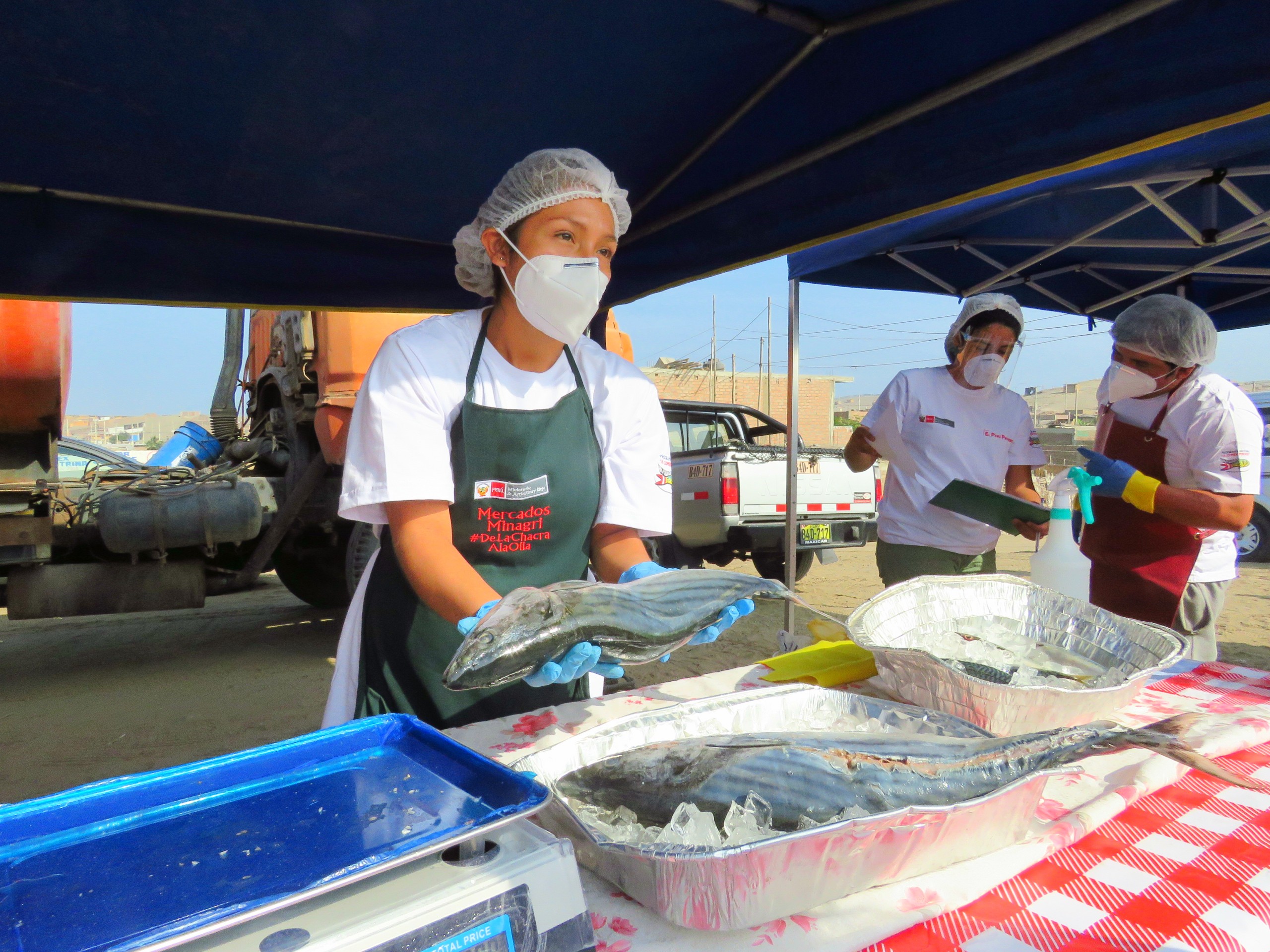Peru sustains the most productive fisheries in the world, yielding nearly 10% of world’s fish catch. The main driving factor for this enormous productivity is the physical and chemical characteristics of its coastal upwelling, which allow the efficient growth of primary producers, high survival rates of larvae and the efficient trophic transfer to foraging fish and top predators.
The scope of this proposal encompasses these two coastal marine ecosystems: the Peruvian Coastal Upwelling Ecosystem (PCUE) and the Tropical Eastern Pacific Coastal Ecosystem. The two targeted ecosystems are subject of significant climatic variability that range from the interannual scale (El Niño Southern Oscillation, ENSO) to the scale of decades or centuries, as palaeoclimatic research has revealed. For example, during strong El Niño events, the warm and nutrient-poor water masses extend along the coast and the overall coastal productivity decrease. Due to thermal stress and scarcity of food sources, anchovy populations become highly vulnerable and experience high natural mortality. Meanwhile, warm-water, tropical fish species migrate along the coast. The opposite responses occur during the cool La Niña events. Therefore the climatic ecological impacts can have dramatic socio-economic consequences for the fishing industry and for the artisanal fishing communities.
The main challenge consists in increasing the resilience of the coastal marine ecosystems and the coastal communities (particularly the artisanal fishing communities) to climate change impacts. The main beneficiaries of this project are the artisanal fishing communities, whose livelihoods largely depends on the status of the coastal marine ecosystems, which are already subject to a number of non-climatic threats.
The overall objective of the project is to reduce the vulnerability of coastal communities to impacts of climate change on the coastal marine ecosystems and fishery resources. This will require the implementation of a group of adaptation measures that include:
- Implementation of a group of activities that contribute to the enhancement of current adaptive capacity of artisanal fishing communities living along the Peruvian coast, and reduce the vulnerability of coastal ecosystems, while increasing the income of the communities and their participation in managing and protecting their natural resources.
- Deployment of a modern and efficient surveillance, prediction and information system of climate and environmental key factors at regional and local scales, supporting fishing, aquaculture and ecotourism activities, as well as fisheries adaptive management based on long-term prevision under climate change scenarios.
- Development of a knowledge framework to facilitate capacity building at different levels and the dissemination of project’s lessons learned;
- Adjustment of the institutional framework (legal, regulatory and organizational) to facilitate EBA for the coastal marine domain at country-level and to implement an Ecosystem Approach to Fisheries (EAF) including artisanal fishing.
Related News
- Project story (pdf) – English, Spanish, French
- Profonanpe video (in Spanish) – PescaResiliente: Meet Ubaldo Tume, an Artisanal Fisherman from Cabo Blanco
- Profonanpe news story (in Spanish) – The Difficult Task of the Fishing Worker in the Face of Climate Change: The Story of Ubaldo Tume
| Component 1: Implementation of interventions in pilot strategic areas to improve resilience of target coastal communities and key coastal marine ecosystems to climate change and variability-induced stress. | US$ 3,124,800 |
| Component 2: Deployment of a modern and efficient environment surveillance and prediction system in the coastal marine ecosystems at regional and local scales supporting fisheries adaptive management under the EAF principles. | US$ 2,055,200 |
| Component 3: Capacity building and knowledge management system for implementing the EBA and the EAF, and for the dissemination of project’s lessons learned, targeting government officials, academia, local communities and other stakeholders. | US$ 420,000 |
| Component 4: Management policies, regulations and measures promoting the resiliency of coastal ecosystems and local communities to climate change and variability-induced stress. | US$ 250,000 |
| Project execution cost | US$ 555,750 |
| Total project cost | US$ 5,850,000 |
| Implementing Entity Project Cycle Management Fee | US$ 544,489 |
| Grant Amount | US$ 6,950,239 |
Project Documents
| Attachment | Type | Size |
|---|---|---|
| Inception Report | 2 MB | |
| Project document | 4 MB | |
| Other project order | 84 KB | |
| PPR1 (for web) | XLSX | 239 KB |
| Other project order | 4 MB | |
| Other project order | 84 KB | |
| PPR2 (for web) | XLSX | 3 MB |
| PPR3 (for web) | XLSX | 1 MB |


